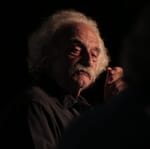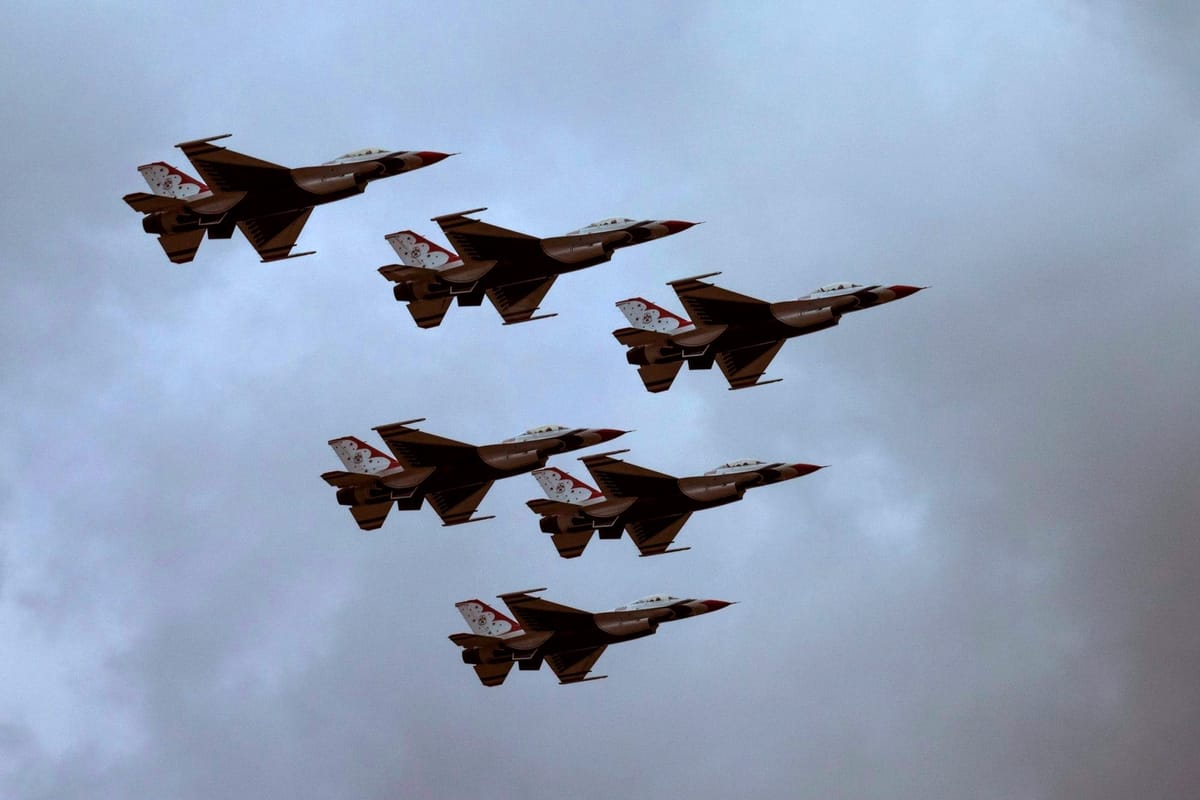‘I know it sounds devastating, especially to people of the younger generation, but we have to mentally get used to the arrival of a new era’. Speaking in March 2024, former European Council president Donald Tusk warned Europeans that ‘war is no longer a concept from the past’, but their own future: even those of us living in states currently at peace live in ‘pre-war’ rather than ‘post-war’ times.
Today serving as Polish prime minister, Tusk is one of a series of top officials around the EU who has in recent months called for a greater focus on defence — rebuilding member states’ military capacities, but also preparing the hearts and minds of populations for a future of war. German defence minister Boris Pistorius, a Social Democrat, called for a ‘change of mentality’ in society — a call followed by a ministerial proposal for regular civil-defence exercises in German schools.
These interventions each specifically concerned the war in Ukraine, as EU governments urged Europeans to prepare for possible future Russian attacks. The full-scale invasion launched by Vladimir Putin on 24 February 2022 surely has spread alarm and calls to mobilise, especially in central-eastern Europe; the bombs and bullets wreaking death and destruction in eastern Ukraine are a grim spectre for populations there, too. Still, hearing Tusk’s words about the ‘younger generation’ having to get used to war as normal reality, we might just as readily think of the population of Gaza — average age 18 — who are today being slaughtered by the Israeli Defence Forces, armed and equipped by a self-styled ‘international community’ almost entirely reduced to Western, liberal-democratic states.
Even insofar as Western states are not formally belligerent powers, they are quite clearly involved in current wars in both Ukraine and Israel-Palestine. Most obviously, because they arm one side, or — as in the case of shooting down Iranian missiles in April 2024 — take an active part in Israeli defence. But the wartime mood also shapes other dimensions of public life. Across a string of European countries, critics of Israel’s war are subjected to so-called ‘counter-terrorism’ measures, ministerial interventions and a creeping shutdown of oppositional speech. Other forces benefit from these new cordons sanitaires, with previously shunned far-right parties welcomed into the European mainstream so long as they support the right ‘Atlanticist’ line. Other major political issues, from integrating migrants to fighting climate crisis, are subordinated to this new division of friends and enemies.
International reactions to the wars in Ukraine and the Middle East are, at a superficial level, a litany of hypocrisies and double standards. More specifically, they illustrate a separation between the attitudes dominant in Washington and its Western allies, and the more common responses in the Global South. This also tells us how both wars — along with other conflicts, from the civil war in Mali to sabre-rattling around Taiwan — are also caught up in the shifting tectonic plates of the globalised capitalist economy. The point of seeing these wars in combination is not to relativise them or to diminish the moral and political stakes of the one by instead highlighting the other. It is, rather, to understand how they are part of a process of fraying Western hegemony, what dangers this means for populations (even in Europe itself) and what peaceful order can be built instead.
This poses a series of urgent questions, if we are not to sink further into what has been called a ‘world war in instalments’. What does remilitarisation in Europe have to say about the reality of Russian threat, or else EU states’ own geopolitical imperatives? Is the green transition to be thrown on the scrapheap, due to the higher demands of military preparedness? Looking beyond a Eurocentric view, what chance is there of building a genuinely international order? And what power do popular mobilisations and peace movements have to stop the logic of militarisation, more than just complain about it? These are some of the questions that we seek to answer with this first issue of the transform review.

Our journal is broadly centred on European politics, including with regard to the fallout of current wars in eastern Europe, the Middle East and beyond. We begin with some essays on the broader geopolitical shifts which structure today’s wars.
Ingar Solty, an expert on peace and security policy at the Rosa Luxemburg Foundation, writes of a ‘six-dimensional crisis’ in the contemporary world. His far-reaching essay links the exhaustion of the Western capitalist states’ accumulation model, to crises of representation, social cohesion, gender relations, international order and humanity’s relationship to nature.
For Palestinian activist Ghada Karmi — author of several works on the Nakba that forced her family from its home in 1948 — any hope of the current war in Israel-Palestine leading to a new Middle East settlement is overstated. She discusses the barriers to both ‘one-state’ and ‘two-state’ solutions, the weak reaction of regional powers, and the likelihood of a long and grinding stalemate based on continual dispossession.
Cornelia Hildebrandt, who is co-president of the transform! Europe network, looks at the difficulty that the European Left has faced in responding to contemporary wars. This is not just a difference between regions, but also a conflict that exists within national contexts: in France, Germany, and across much of the continent, existing splits within the Left have been heightened by the wars in Ukraine and Israel-Palestine, making it difficult for left-wing forces to speak with a common voice.
The next two pieces look at the impact of the Russia-Ukraine war in reshaping the countries most directly involved. If Ukrainian society is mobilised for war, with industry and the deployment of the workforce oriented to military ends, its social reproduction — the tasks of care, maintaining life, and raising the new generations — have also been profoundly transformed. Writing from a Marxist-feminist perspective, Kyiv sociologist Oksana Dutchak explores how the material effects of the invasion, the defence mobilisation, and a decade of neoliberal reforms have reshaped vast, often overlooked areas of Ukrainian life.
Gender studies scholar Alexandra Talaver instead focuses on the Russian war economy. She explains why the idea of ‘national rebirth’ corresponds to a material crisis and why the demographic effect of the war should not be measured only in terms of dead soldiers. Her essay instead identifies a capitalist rationality in the Russian war effort, as the militarised state strives to capture and integrate new populations from the occupied territories, as a brutally authoritarian answer to Russia’s demographic crisis.
Beyond the belligerent states, our ‘country studies’ — a regular part of this journal — help us see how today’s wars are effecting the domestic policies of other countries. Political science professor Jokubas Salyga explores the case of Lithuania, a country where the echoes of the Ukraine war have been especially keenly felt. In this land bordering Russia and Belarus, which was also home to a NATO summit in 2023, the generally ardent support for Kyiv’s defence is complicated by the impact of the war on popular living standards and the contradictory treatment of refugees and migrants.
For John-Baptiste Oduor, a London-based editor at Jacobin magazine, the rise of Keir Starmer’s Labour Party ahead of that country’s general election offers a privileged way of understanding Britain’s weakened position in international affairs. Domestically, Starmer has worked hard to position himself as the opposite of his anti-imperialist predecessor Jeremy Corbyn, thereby winning establishment praise. Yet, in obsequiously tailing Washington’s orthodoxies, Starmer only guarantees that Britain will help feed the slide toward military escalation.
Jeremy Corbyn is, indeed, a lifelong peace campaigner, first involved in the Campaign for Nuclear Disarmament in the 1960s and then harassed throughout his time as Labour leader by media insistence that he should bow to Atlanticist orthodoxies. In an interview with transform review, Corbyn reflects on the role of anti-imperialism in his political formation — and discusses what role the international peace movement can play in resolving today’s conflicts.
International cooperation is also the framing of an essay by Pasqualina Napoletano, a long-time ex-member of the European Parliament here writing on the EU’s approach to Palestine. Her historical perspective questions the myths of an autonomous European foreign policy. She shows how consistently the EU has prioritised its own internal political balances over making any real contribution to peace in the Middle East — or amending for Europe’s own role in driving the conflict.
Meanwhile Simona Fabiani, of the Confederazione Generale Italiana del Lavoro union, argues that international institutions have allowed the war to serve as an alibi to not address the great pressing question of our time — the need to respond to climate change.
Our issue concludes with two regular sections inherited from our previous Yearbook, but also connected to the central theme of this issue. First is a pair of pieces on anniversaries marked in 2024. Leading historian Fernando Rosas writes on 50 years since the Portuguese Revolution, when the military defeats for the senile Salazarist regime in its colonial wars helped to open up a profound process of democratic change in the imperial metropole — albeit one that soon came up against hard limits.
Historian Vladimir Unkovski-Korica writes on the 25-year anniversary of the 1999 NATO bombing campaign in Yugoslavia. In his essay, he argues that this was not just a questionable ‘humanitarian’ intervention, but an episode in which Washington used the ‘unipolar moment’ to impose its hegemony in the Balkans and forestall the rise of potential competitors. In his view, this experience highlights the need for not just ‘anti-war’ stances on the Left, but an analysis of imperialism in the rising multipolar age.
Faced with today’s wars, the Pope — who recently met with several members of the transform! Europe network — has been a voice for de-escalation. In this issue’s ‘Marxist-Christian dialogue’, José Manuel Pureza asks what points of common ground can be found in resisting the drive to war, and in finding solutions to the great disasters of our age, from material deprivation to the environmental crisis.




